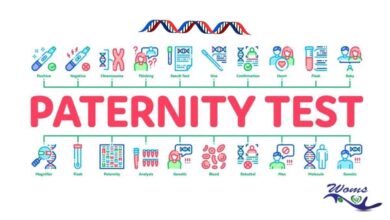Treating Alcoholism: Do You Want to Stop Drinking?

Alcoholism affects millions of people around the world. It is also the third-highest preventable cause of death in America after only tobacco and being physically inactive. It affects adults and children, both directly and indirectly.
However, with the right support and treatment from an alcohol intervention specialist, people can overcome alcoholism. In this post, we will look at what alcoholism is and what you should do if you realize you have a problem and want to stop drinking.
What is alcoholism?
Alcoholism or Alcohol Use Disorder (AUD) is when a person can no longer control how they use alcohol. It involves compulsively consuming alcohol in spite of any negative consequences that may arise. Alcohol abusers may also become emotionally distressed at times when not using alcohol. It is a chronic illness that cannot be cured, only managed.
According to the Diagnostic and Statistical Manual of Mental Disorders (DSM-5), if an individual meets 2 out of 11 criteria over a twelve-month period, then they could be diagnosed with alcoholism. Examples on the list include having a strong desire to use alcohol and having a tolerance for alcohol that requires huge amounts to be drunk to feel the effects.
Recognizing the problem
A useful measure of risk is offered by the National Institute on Alcohol Abuse and Alcoholism (NIAAA) outlines when people may be at risk of AUD. For men, if you drink more than 4 drinks on a given day and more than 14 drinks per week, then you are at an increased risk of alcoholism. For women, 3 drinks on a given day and 7 in a week put you at risk.
Most people who have a problem, recognize it and want to deal with it. However, alcoholism can make people feel powerless and many steps need to be taken. It will take time and immense willpower. But fighting it is worth it. Alcoholism affects both the user and those around them. Whether you meet the criteria outlined or feel that you are addicted to alcohol, it is important to reach out for help. Recognizing the problem is the first and one of the hardest steps for people with an addiction.
Steps You Can Take at Home To Stop Drinking
After recognizing the problem and seeking support, there are various simple steps you can take at home to help you fight the urge to drink. Here, we outline 3 ways that make it harder for you to obtain alcohol at home and easier to stop drinking:
1. Throw all of it away
Whilst recognizing the problem is important, you have to take measures to help you turn intention into action. Throwing out or giving away all the alcohol in the house is key to this. If it is right there in front of you, it is much harder to fight temptation. Knowing it is gone can also have a psychologically dampening effect on your urges for it.
It is true that, just because it is out of the house, it doesn’t mean you won’t still have cravings. However, the physical separation and extra time you give yourself between wanting and obtaining alcohol give you more of a chance to resist temptation. Rather than going from the urge to reaching into the drinks cabinet, you have to go from urge to driving/walking to the store, and making a payment.
2. Block Bank Cards in Certain Stores
This makes clearing out the liquor cabinets to the next level and adds an extra layer of protection that goes even further. It might sound drastic, but taking steps to make fighting alcoholism easier demands this sort of action.
All you have to do is give your bank a call and let them know where you want your card to be blocked from spending money. Try to cover every store you can think of where you could buy alcohol. Make sure you have everywhere in the local area covered as a minimum.
This way, if you do start to lose the battle against your urges you will have to drive farther and take more extreme action to obtain alcohol. The added obstacles give you more time to choose a different course of action.
3. Try a rehab or detox service
Even with the steps above, it is a good idea to seek professional help. From a rehab clinic to help at home. If heading into a hospital-like setting fills you with dread or you have tried it before and found it hard when you come back out, home detox services offer a different way.
You’ll still be with your family whilst they support you and as much as possible stays as normal. The goal is to keep things as stable as possible and help you get to the root of the problem in your own comfort zone.
Alcoholism can affect anybody and sneak up on you. If you think you might have a problem, it is important to seek help and communicate with your loved ones. It is much easier to tackle with support. The steps above are also a great first step when you have decided to tackle your addiction.




